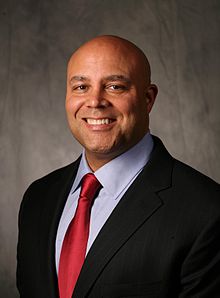Powell to Congress: Prune Outdated Set-Top Integration Ban
The smarter way to stay on top of the multichannel video marketplace. Sign up below.
You are now subscribed
Your newsletter sign-up was successful

Previewing a likely square-off with TiVo in the March 12 STELA hearing, National Cable & Telecommunications Association president Michael Powell plans to tell the House Communications Subcommittee that it likes the STELA draft issued by the Republican leadership, and in particular the provisions on getting rid of the FCC's set-top integration ban, which he calls an outdated legal requirement that handicaps cable operators, and limiting coordinated retrans negotiations.
Powell will say the requirement that cable operators, "and cable operators alone" include a separate decryption component--a CableCARD--adds extra cost, sucks up extra energy, and provides "no added benefit to cable customers with leased set-top boxes."
He contends that the integration ban imposes needless extra cost and is not necessary to promote competition in retail device availability.
“Retail competition in navigation devices is a worthy goal, but it is now clear that this goal is best supported by embracing the innovations already occurring in today’s retail marketplace and not by clinging to an outdated and costly FCC rule,” according to Powell.
As to prohibiting coordinated retrans negotiations among two or more independently owned stations in a market, which the bill would do unless cable ops agreed to it, Powell said NCTA was all for it: "If multiple broadcast stations in a local market are not co-owned, then they should not be allowed to act as if they are co-owned in retransmission consent negotiations through a sharing arrangement."
Powell pointed to the Department of Justice position -- in an FCC filing -- that such joint negotiations would "eliminate competitive rivalry" between stations."[E]xchanging or sharing information regarding the terms of existing retransmission consent agreements, the potential terms of future retransmission consent agreements, or the status of ongoing retransmission-consent negotiations," according to his testimony.
He would have preferred that there be a curb on indirect coordination via "exchanging or sharing information regarding the terms of existing retransmission consent agreements, the potential terms of future retransmission consent agreements, or the status of ongoing retransmission consent negotiations." But he believes that the bill's provision is an "important step."
The smarter way to stay on top of the multichannel video marketplace. Sign up below.
Contributing editor John Eggerton has been an editor and/or writer on media regulation, legislation and policy for over four decades, including covering the FCC, FTC, Congress, the major media trade associations, and the federal courts. In addition to Multichannel News and Broadcasting + Cable, his work has appeared in Radio World, TV Technology, TV Fax, This Week in Consumer Electronics, Variety and the Encyclopedia Britannica.

